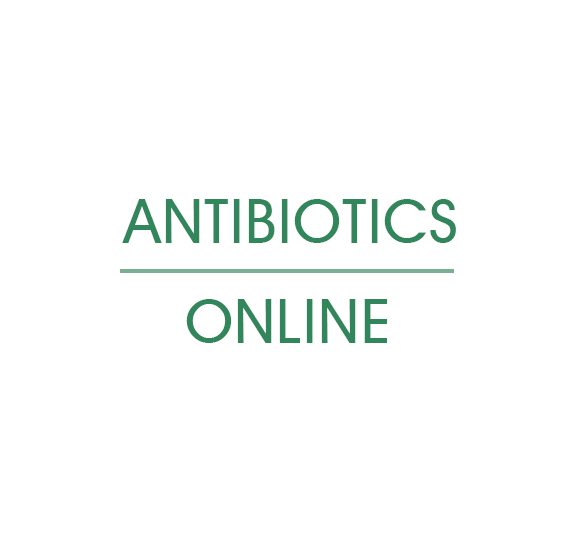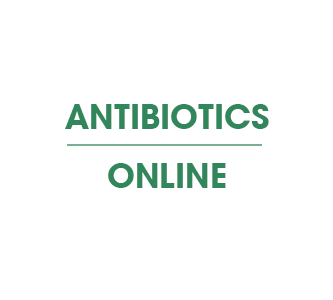Guide to antibiotics - How to use them properly
Antibiotics are natural or synthetic chemical substances that act on micro-organisms, mainly bacteria.
They are usually available in capsule or tablet form for oral administration, or in injectable form, as skin ointments, ear drops or ophthalmic drops. Antibiotics can only be obtained with a doctor's prescription.

The first industrially-produced antibiotics were used in 1941 thanks to a natural compound: penicillin. This represented an enormous advance for the medical profession, since most bacterial infections could now be controlled. Since then, many antibiotics have been developed by semi-synthesis (by modifying part of a natural molecule) or by complete chemical synthesis. Today, most antibiotics are chemically synthesised.
Note: do not confuse antibiotics with antiseptics. An antiseptic is a disinfectant designed to destroy all micro-organisms. Unlike antibiotics, antiseptics are only used locally and applied externally as a lotion or ointment.
How do antibiotics work in the body?
The aim of antibiotic therapy, i.e. treatment with antibiotic drugs, is to eliminate pathogenic bacteria. To achieve this, antibiotics have two main roles:
- Bactericide, when they destroy bacteria;
- Bacteriostatic, when they prevent bacteria from proliferating.
Antibiotics are used on so-called "pathogenic" bacteria, which can cause an infection. We find bacteria all around us, but not all of them are dangerous. For example, the bacteria present in our intestines help to create a favourable balance for digestion and limit the development of other bacteria that would be harmful to the proper functioning of the intestines.
Antibiotics can act on a wide range of infectious agents (known as broad-spectrum molecules) or, on the contrary, focus on a reduced number of infectious agents (known as narrow-spectrum antibiotics). By specifically identifying the agent responsible for an infection, it is possible to use the most specific antibiotic for the agent in question and avoid the development of resistance to treatment.
Antibiotics have different mechanisms of action, focusing on one of the phases in the development of an infectious agent: synthesis of the bacterial wall, synthesis of nucleic acids, synthesis of the cell membrane, synthesis of proteins and folic acid.
How long does it take for antibiotics to take effect?
Whether they are intended to destroy bacteria or prevent them from multiplying, their effects are felt 24 to 48 hours later. Some bacteria are less affected by antibiotics, which take longer to work. Antibiotic molecules attack the infection quickly, but also the tissues damaged by the infection. This explains why, as a patient, you may not feel better immediately. The body needs a few days to fully recover from the infection.
On the other hand, if your condition deteriorates or if you develop new symptoms after starting your antibiotic treatment, it is advisable to consult the doctor who prescribed your treatment again. If the doctor is not available within a reasonable timeframe for your symptoms, a doctor on Livi can carry out a video consultation to assess your state of health.
When are antibiotics necessary?
Ideally, antibiotics should only be used as a last resort, when an infection is unlikely to go away without antibiotics (for example, a recurrent urinary tract infection) or when there is a risk of more serious complications.
Taking antibiotics when you don't need them may mean that they won't work for you in the future, when you may really need them to treat a more serious condition.
What conditions require antibiotics?
An infection
Antibiotics are only effective against bacteria. Depending on the type of infection you have, your GP will prescribe an antibiotic tailored to your condition. You could receive antibiotic treatment for a urinary tract infection, bacterial meningitis or an ear infection, for example.
Although many illnesses can now be controlled with antibiotics, it is now possible for bacteria that were once easily treated to become more resistant. Infections such as pneumonia, tuberculosis and gonorrhoea, for example, are becoming increasingly difficult to treat. Antibiotic resistance is now a major health threat, leading to longer hospital stays, higher medical costs and difficulties in treating certain conditions.
The common cold
Antibiotics are ineffective against rhinopharyngitis or flu, coughs and sore throats (when these are caused by a virus). So don't take antibiotics to relieve symptoms caused by a virus. It would be pointless.
What's more, most mild bacterial infections get better on their own without antibiotics.
The best thing to do if you have a cold is to rest and drink plenty of fluids. And if necessary, paracetamol can be used to bring down a high fever (without going overboard).
It's normal to want to get rid of a cold as quickly as possible. But using antibiotics won't help. In fact, using them against viruses can put you at risk of contracting an antibiotic-resistant bacterial infection.
Covid-19
Antibiotics cannot treat viruses, including Covid-19. But some people with Covid-19 can develop a bacterial infection. In this case, antibiotics may be prescribed to treat the infection.
Can it be given to a child?
Since most childhood infections are caused by viruses, children do not often need antibiotics. When they do, doctors generally prescribe them according to the child's age.
Are there any side effects to taking antibiotics?
Taking antibiotics can sometimes have side effects. Antibiotics have an impact on the intestinal flora, which can cause intestinal problems. Depending on the treatment, it is also possible to observe a weakening of the vaginal flora, photosensitisation or allergic reactions.
It is also common to feel tired during antibiotic treatment. But this is mainly due to the infection and the immune response your body has to mount.
Is it possible to develop resistance to antibiotics?
It is possible to develop resistance to antibiotics. That's why it's important not to overuse them. It is also essential not to use them when they are not necessary. If they are overused, the bacteria they are supposed to treat can change, adapt and develop resistance. This can eventually mean that antibiotics are no longer effective.
Antibiotic resistance is now a global problem, with common infections becoming difficult to treat. This is the case, for example, with gonorrhoea, where some strains are more resistant than others.
What is the shelf life of antibiotics?
Their expiry date should be indicated on the box. It is important never to use an antibiotic if the expiry date shown on the packaging has passed. The reason for this is that once the date has passed, the product loses its effectiveness and may even present a risk. As a general rule, it is also advisable not to re-use antibiotics prescribed for the treatment of another illness.
How to use antibiotics correctly
When your GP prescribes a course of antibiotics, it is important to follow certain instructions to avoid the side effects described above:
Respect the dosage
Respect the doses administered and the duration of treatment: even if your state of health improves, continue your treatment until the end, respecting the frequency of doses and the duration of treatment. Otherwise, you run the risk of falling ill again very quickly if the bacteria are not completely eliminated. What's more, stopping your treatment prematurely could encourage the selection of antibiotic-resistant bacteria.
Reporting negative developments
Tell the doctor who prescribed your treatment about any negative changes in your health: if your condition deteriorates, talk to your doctor; if your doctor is not available within a reasonable time, talk to a doctor.
Do not reuse old antibiotics
Do not reuse an antibiotic from a previous course of treatment: even if you seem to be experiencing the same symptoms as with your previous course, consult a health professional and avoid self-medication. Each treatment is specifically prescribed according to the type of infection and your state of health.
In the event of an allergic reaction
Report any allergic reaction to your doctor before starting antibiotic treatment.
Observe contraindications
Treatment and dosage must be adapted in the following cases:
- In children;
- Pregnant women;
- In case of hepatic insufficiency;
- In case of renal insufficiency;
- In cases of heart failure.

